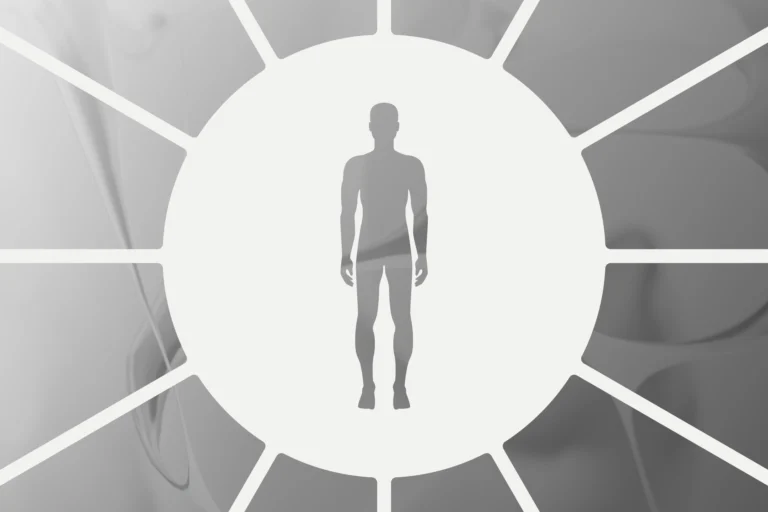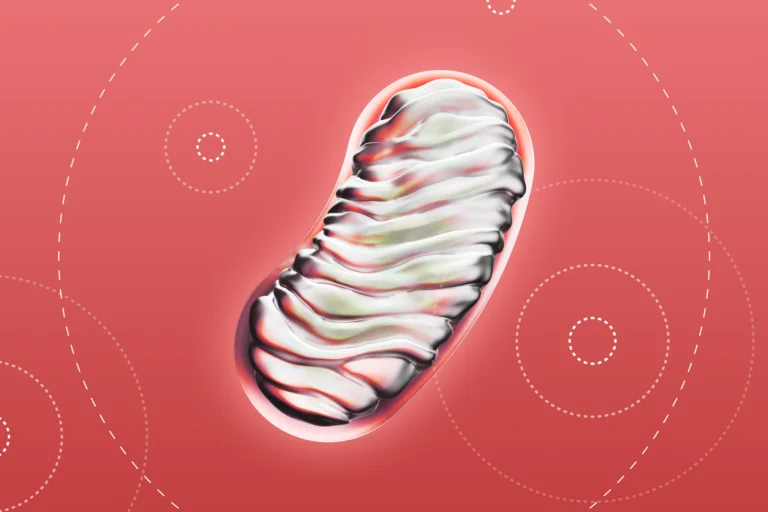Key takeaways
- Autophagy involves the removal and recycling of old and damaged cellular components.
- Autophagy is key for lots of biological functions, including maintaining immune function and helping cells to respond to stress.
- As we age, autophagy levels decrease.
- Fasting and caloric restriction may induce autophagy and promote healthy aging.
- Compounds such as Urolithin A have also been identified as playing a role in promoting a specific type of autophagy called mitophagy.
Understanding how the body ages is key when it comes to efforts to prevent chronic disease and preserve health with age. Maintaining the health of the cells is an important part of healthy aging, and certain processes play an important role.
About Autophagy
In the body, cells and their organelles are constantly remodeled and recycled. [1]Autophagy literally means self-eating, and it is the process by which old and damaged parts of the cell are broken down and recycled so that they can be used to generate new cellular components.[2]
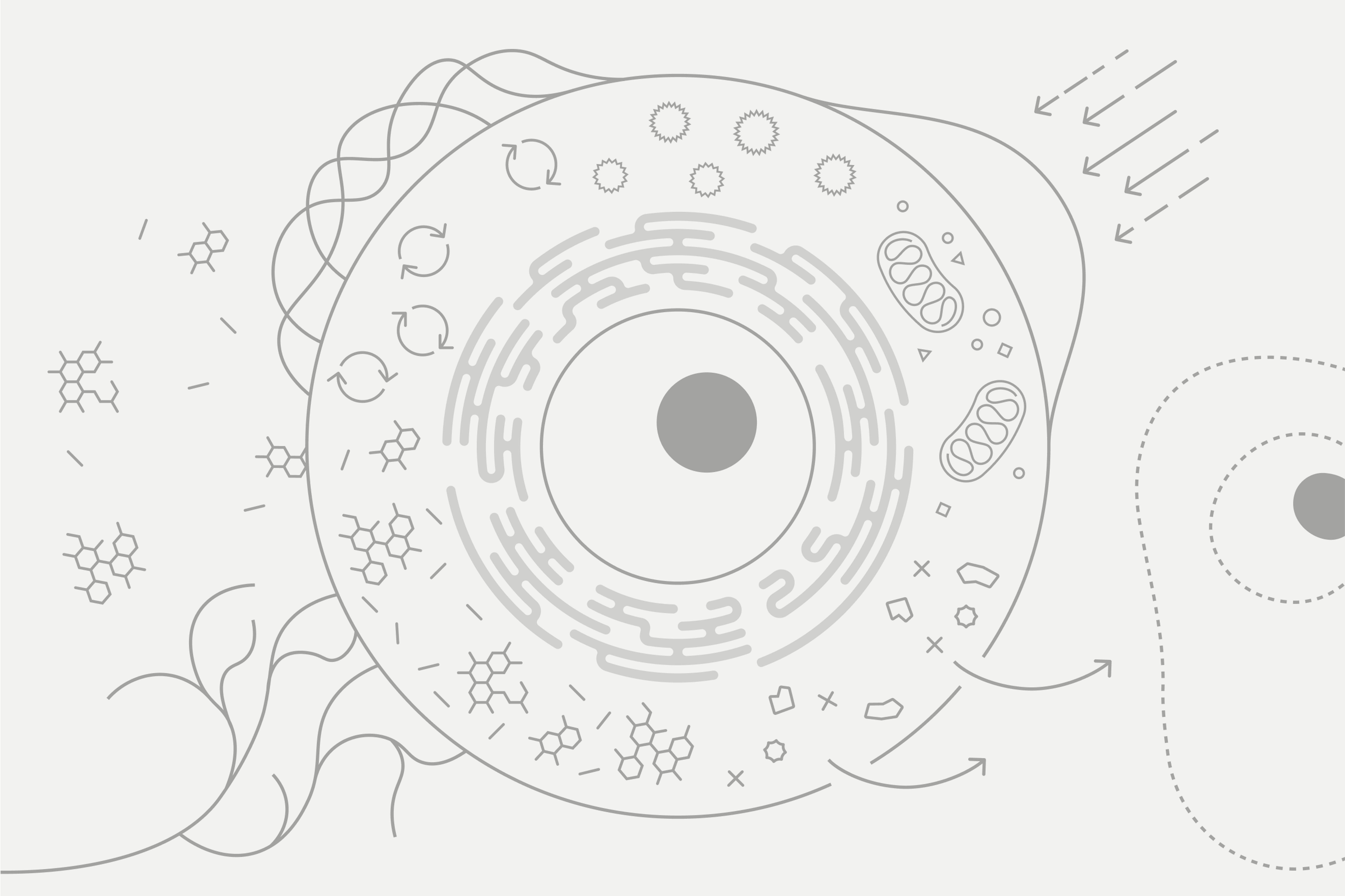
What are the functions of autophagy?
Autophagy has numerous functions, one of which is for the cell’s organelles to be recycled and renewed.[3] Autophagy allows for the maintenance of optimal cellular components over time. This ensures that dysfunctional and potentially harmful parts of cells don’t accumulate. Autophagy is also key for maintaining the cell’s response to stress, energy production, and defense against pathogens.[4] It is triggered in several conditions in which the cell is under stress, such as nutrient limitation, heat, and accumulation of compounds that can cause damage to cells. It functions in several ways in immune function, such as eliminating invasive pathogens, including viruses, parasites, and bacteria.[5]
Autophagy is also involved in cellular development and the process through which cells take on specialized functions.[6] This includes control of the differentiation of various types of immune cells. The various immune cells are involved in the body’s inflammatory response, linking autophagy to disease prevention.[7]
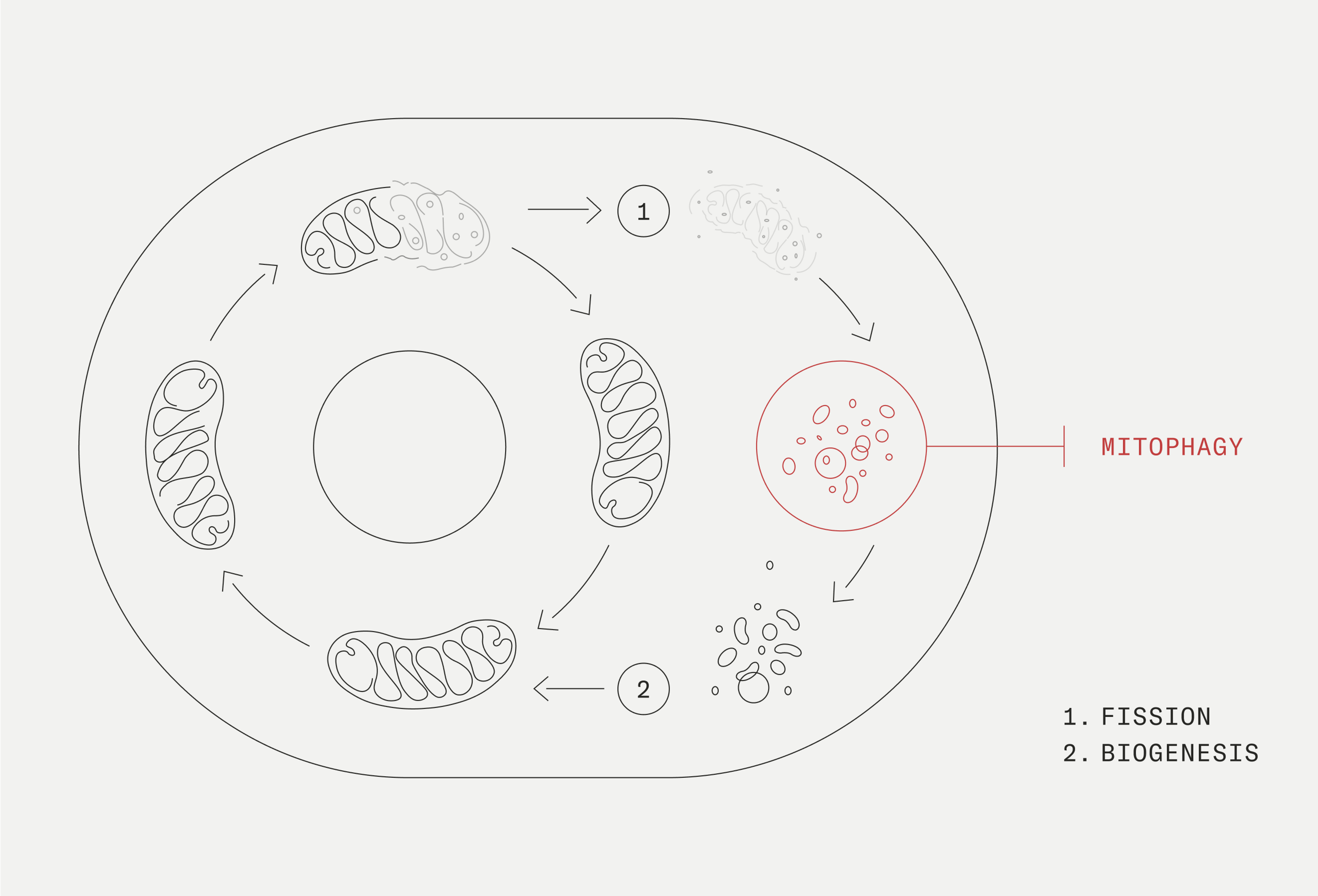
What role does autophagy play in aging?
Autophagy is closely tied to healthy aging, which has made it an important target when it comes to health promotion. One of the ways in which autophagy is linked to healthy aging is through its role in promoting the functioning of the mitochondria, the “powerhouse” of the cell where energy is produced. The type of autophagy that involves the removal of damaged mitochondria to promote cellular health is known as “mitophagy.”[8]
Impairment of autophagy with age affects many of the processes that drive aging. These are known as the “hallmarks of aging” and include mitochondrial dysfunction. The result of the impairment in autophagy may be due to a natural decline in levels and function of autophagy components, poor response to stress, disrupted cell functioning and energy production, or impaired communication between cells, among many other problems.[9]
Cellular senescence is one of the problems that relate to autophagy and is also considered a hallmark of aging. Senescent cells eventually stop multiplying but do not die off when they should.[10] Autophagy has been found to play an important role in the prevention of cellular senescence and thus has a protective role when it comes to aging.[11]
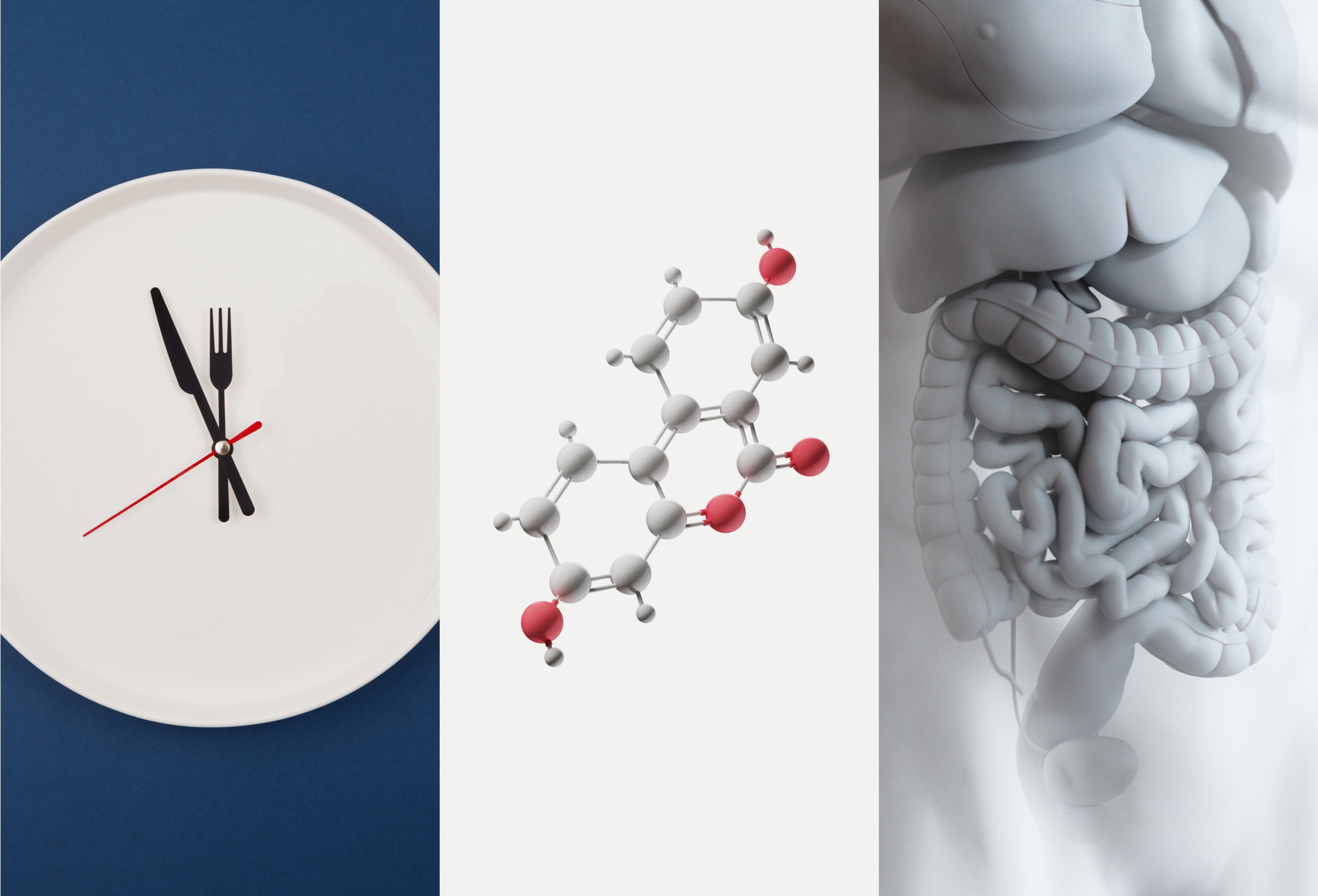
How to induce autophagy
Fasting and caloric restriction (CR) have both been pinpointed as practices that may induce autophagy. CR has been considered to slow aging and increase longevity based on previous research. A recent review of the literature found that both fasting and CR upregulate autophagy, and that food deprivation triggers autophagy in a variety of tissues and organs.[12]
Other studies have focused on particular compounds that may play a role in autophagy, such as Urolithins. These compounds are produced in the gut upon consumption of precursor molecules in foods such as berries, pomegranates, and walnuts. Urolithin A has received particular attention when it comes to the promotion of healthy aging and has been studied in relation to autophagy.
Urolithin A and mitophagy
Urolithin A has been found to induce autophagy and mitophagy in numerous studies, which links it to health-promoting benefits.[13] As a postbiotic molecule, we rely on our gut microbiome to make Urolithin A, and studies have shown that only 30-40% of individuals have the right microflora to produce Urolithin A.[14]
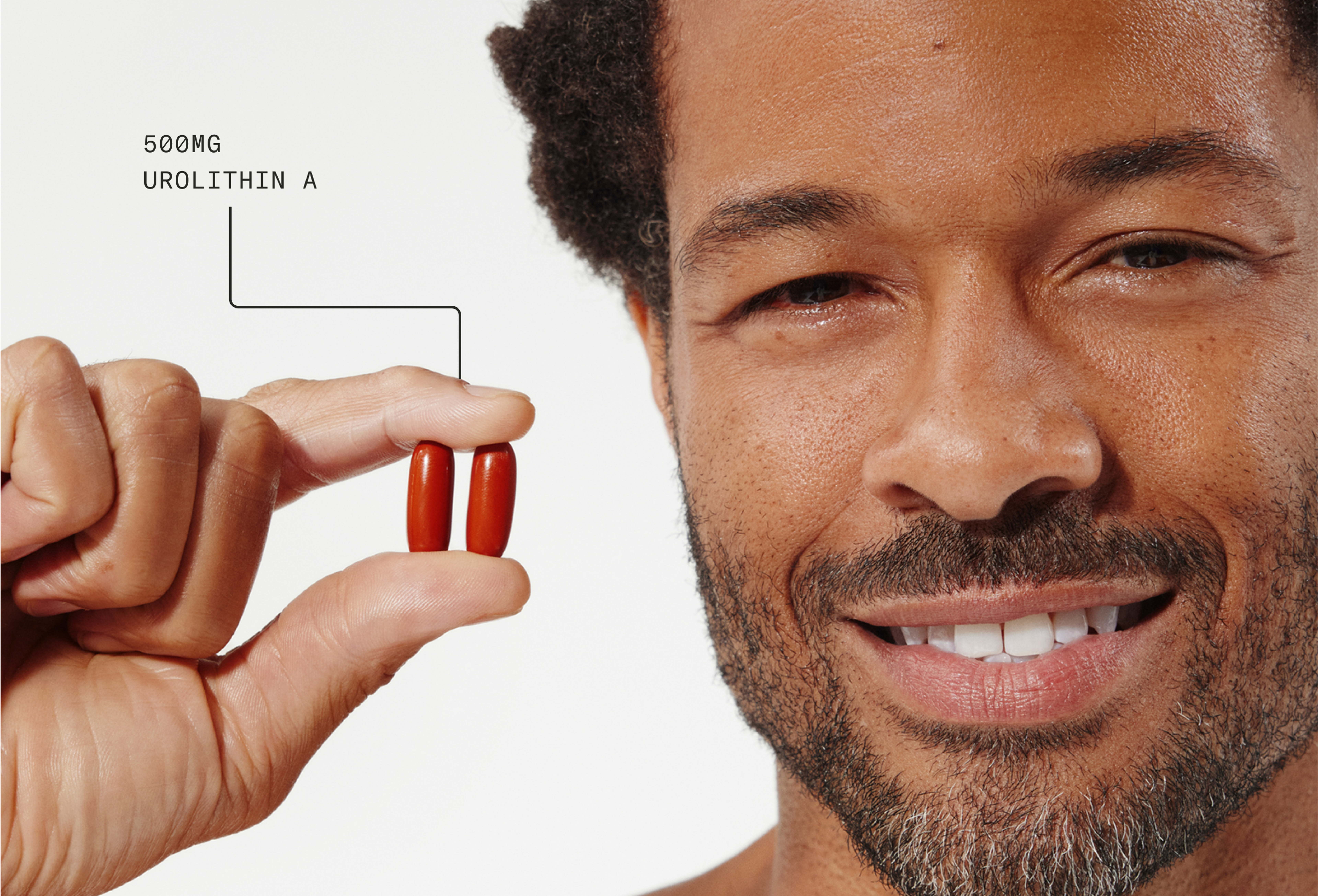
Mitopure® is a highly pure, precise dose of Urolithin A that has been clinically proven to improve cellular energy and muscle strength and performance.[15]
As disabled autophagy is considered one of the hallmarks of aging, it will continue to receive attention when it comes to health promotion. Given the evidence for the increase in health span and lifespan with stimulation of autophagy, it represents an important focus with regard to healthy aging.


